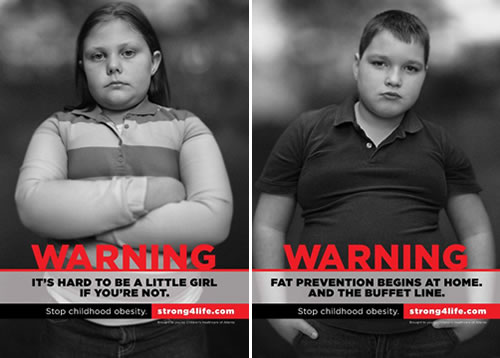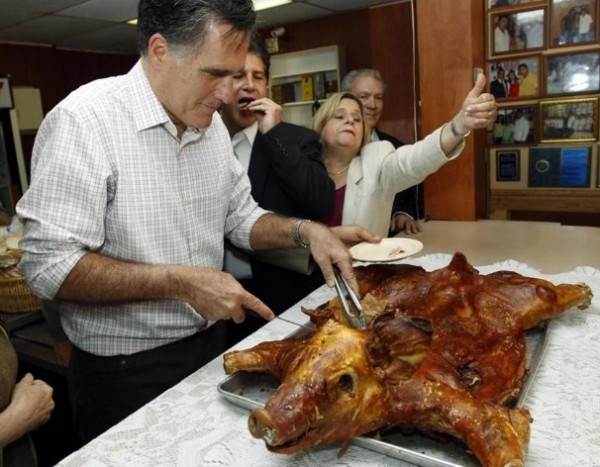Notes
Combining Children with Scare Tactics in Georgia’s Anti-Obesity Campaign
In the state with the nation’s second highest rate of childhood obesity, one organization has adopted the kind of shock advertising tactics previously reserved for anti-smoking campaigns. And despite the claims of Georgia’s Strong4Life campaign spokespeople that the parents of overweight children are the intended audience, the captions in these anti-obesity ads tell a different story.
For one thing, the use of the second person pronoun speaks directly to those who might identify with Tina, the little girl in the image on the left. The caption makes a claim about the difficulty of childhood for little girls who aren’t little, yet it reads “if you’re not.” Note that it doesn’t say if she’s not – an important distinction no matter your opinion of semantics. Similarly, the caption for Bobby’s picture (on the right), tells us that “fat prevention” takes place in the “buffet line” – a space of personal agency.
The somber expression and direct gaze of the children reads as accusatory in some images and pleading in others. The children stare down the camera, and the stark black and white of the images serves to emphasize the grim nature of their predicament. Combined with the inflammatory captions, the ads consciously manipulate feelings of guilt and fear in an effort to capture attention. Which they do, quite effectively; it’s just a question of whose attention they’re trying to get.
— Cate Blouke



Reactions
Comments Powered by Disqus